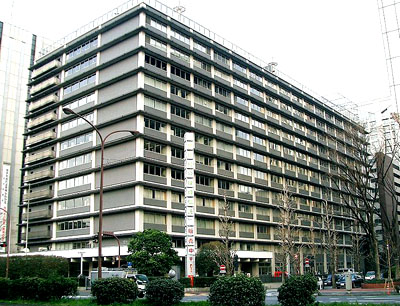In its sights is not only the lifting of the limit on postal savings deposits but also the raising of the limit on life insurance coverage from ¥13 million to ¥25 million.
On the 25th February and again on the 9th of March, representatives of JA’s key national organisations (the National Central Union, the National JA Insurance Federation, and the Central Bank for Agriculture and Forestry) visited the Financial Services Agency and directly put their case to Kamei Shizuka, Minister of Financial Services and Postal Reform. The JA representatives made strong statements, viz., ‘If the limits on postal savings and postal life insurance are raised, pressure on the management of commercial financial institutions is unavoidable’, and ‘If you raise the limit, the influence on JA management will be profound’. They demanded that the new institutional arrangements for Japan Post not steal business from the private sector, arguing that JA’s management, which was doing its best to operate successfully as a private sector enterprise, would be squeezed by the plan.
They were speaking from experience. In 1991 when post offices raised the minimum deposit limit from ¥7 million to ¥10 million, there were serious repercussions for private financial institutions. In the space of one year, the level of postal savings increased by about ¥20 trillion, which was more than a 14.2 per cent rise. On the other hand, the rate of increase in JA and fisheries cooperatives’ savings declined from 7.7 per cent in 1991 to 3.7 per cent. According to the Central Bank for Agriculture and Forestry’s calculation about current prospects, if JA savings decrease by ¥10 trillion, the gross profits from JA’s trust business will decline by ¥100 billion.
Kamei responded by saying that he wanted to revive the level of postal savings at Japan Post Bank, which had declined. The outstanding balance of these savings has fallen from a high of ¥260 trillion when the 10-year postal privatisation process began in October 2007 to a current level of ¥170 trillion owing largely to the lower interest rates on postal savings deposits compared with the commercial banks .
The current outlook for a number of JA’s businesses is negative in terms of profits, market share and volume of business. JA’s share of rice sales (by far the most important agricultural commodity it trades) has fallen to 50-60 per cent. The operations of many local co-ops are unprofitable because they are dependent on the patronage of small-scale, part-time farmers owning tiny plots, whose input demands and output sales are very small. The local agricultural co-ops that run up operational deficits traditionally rely on profitable credit and insurance businesses to make up the shortfall. However, even JA’s financial businesses are in difficulties.
Not only has competition in the savings and loans market increased recently, but investments of the Central Bank for Agriculture and Forestry were hard-hit by the global financial crisis with well over ¥1 trillion in unrealised losses. The question JA now faces is whether its financial businesses are in a position any longer to cover losses in its agricultural businesses. If savings flow out of JA into Japan Post Bank, it will push many local cooperatives into the red.
It also raises questions about the implicit contradictions in government policy. To the charge that Japan Post would end up using its massive surge in funds merely to buy more government bonds, Hatoyama has said that the group ‘should not become merely an institution to buy government bonds. It has to be one that can contribute to the revitalisation of regional economies’. What he has agreed to, however, is a policy that will undercut the financial and economic strength of the biggest economic organisation in regional areas – JA.
Minister Kamei himself also represents interests that attach great importance to maintaining services in rural areas, yet in this case, his interests seem to be narrowly institutional rather than broadly regional. His main desire reportedly centres on transferring anywhere from 70,000 to 100,000 non-regular workers into regular jobs in Japan Post, which will require a big expansion in earnings growth from its savings business, in order to create a loyal constituency for his own party . While this move is likely to increase postal votes for Kamei’s People’s New Party, for the DPJ as a whole, votes are more likely to decline overall despite a certain hardening of the postal vote.
Other vested interests should also be factored into the equation. In a situation where 80 per cent of postal savings are invested in government bonds, raising the deposit cap makes it easier to sell government bonds, and for this reason it is likely to be welcomed by Japan’s Ministry of Finance (MOF). The MOF probably sees postal savings as a storehouse of strong national bonds until the raising of the consumption tax rate can be realised. This may explain why MOF Minister Kan Naoto, who had been expected to weigh in on the deposit cap issue, failed to do so, leaving National Strategy Minister Sengoku Yoshito out to dry.

